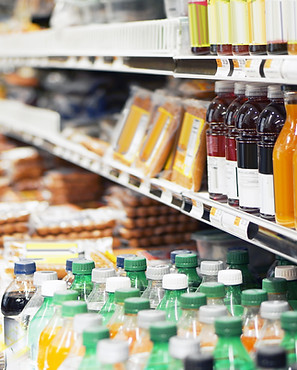top of page

60% of your body weight is water; replenish it everyday.
HYDRATION:
60% of your body weight is water; replenish it everyday.
HYDRATION:
WHY WATER IS SO IMPORTANT:
Did you know that about 60 percent of your body is made of up of water? Water is the predominant medium in our cells and in between our cells. Most people think of water flowing only in the blood, but in fact, most of what is outside of your blood vessels and in your tissues is also water. It's almost like the planet earth; it's hard to believe that about 70 percent of our planet is covered in water. So we will not spend any more time trying to persuade you that drinking water is very important for your health and well being. Water is like the oil in your car; without it your engine is sluggish and slow.
Most of your body is made of water; replenish it every day.
HOW MUCH TO DRINK?
Before we answer this question, it is helpful to understand how we gain and lose water. We gain water by simply drinking water or by eating foods that have water in them. Water loss, on the other hand, is a bit more complicated. Our kidneys are the main organs that monitor our hydration status and adjust the amount of water they excrete accordingly. We can lose water in intangible ways:
-
Our skin is constantly losing water to maintain our body temperature (water is lost by sweating).
-
Every time you exhale, you breathe out gases mixed in water vapor (hence the fog when you blow on a glass).
-
We also lose water through our stool.
So, your water intake needs can be very different on a day-to-day basis depending on what climate you are in and what your activities are like.
One simple and common rule for hydration is the 8×8 rule (8 glasses of 8 ounces) which equates to a half gallon (2 Liters) per day. But again, this is a very crude generalization.
A better way of assessing your hydration status is to pay attention to your urine. Remember that the kidneys regulate your hydration status by absorbing or excreting water in urine, so your urine volume and color should be a good indicator. So pay attention to your urine!
-
Large volume, light colored urine excreted every 3 to 4 hours indicates a well hydrated body.
-
Small volume, dark urine indicates a dehydrated body.
WHAT TO DRINK?
All fluids will hydrate you the same way, whether it be in pure water, soda, juice, soup or anything else. In fact, there is a lot of water in the food you eat (think of an orange, so juicy). But what is not the same in the above mentioned fluids is the associated calories. Pure water has no calories, but on the other hand, a can of regular soda has around 200 calories that is almost all in pure, high index sugars. We have already discussed commercial juices and how they are mostly purified sugar in water. Sports drinks are another commonly consumed product. Most sports drinks are loaded with salt which can raise your blood pressure and high-index carbohydrates, which can raise your blood sugar. So, unless you are training for a long distance race and are exercising more than an hour, sports drinks are not for you. The best way to hydrate is to drink simple water; it's nicer for the body and wallet. You may try variations such as sparking water or lemon water, but sodas (of any kind), juices, and sports drinks should not be part of your hydration regimen. They simply have too many calories.
HYDRATE ECONOMICALLY:
Hydration has become quite popular nowadays and the food industry has seized the moment to flood the market with a variety of drink options. In fact, grocery stores have more than a whole aisle dedicated to various flavored drinks. Stay away from these aisles. Most of these products have unhealthy and synthetic chemical ingredients. Plus they are an expensive way to hydrate. At about one dollar per 8 oz (or more), it will cost you at least 8 dollars to hydrate daily ($2920 per year). A much better way of hydrating is to invest in a high quality water bottle ($20-40) and then fill it up with your tap or filtered water (free). In addition many public areas nowadays have free water stands for your refills. Babak personally owns a Hydroflask 25 oz water bottle that he carries with him. Other good brands are Yeti and Brita Stainless Steel. If you like your water flavored, simply drop a lemon, lime or orange in there.

Water balance in adults, not accounting for exercise.

DRINKS TO AVOID:

SODAS
-
high in sugar
-
made of synthetic chemicals
-
devoid of any health benefit
-
have no place in your daily diet

COMMERCIAL JUICE
-
devoid of all the fiber in whole fruit
-
made mostly from water and high-index sugar
-
only healthy juice is made at home

SPORTS DRINKS
-
most are high sugar
-
all are high in salt
-
only use if endurance athlete
-
not indicated for recreational athlete
bottom of page
